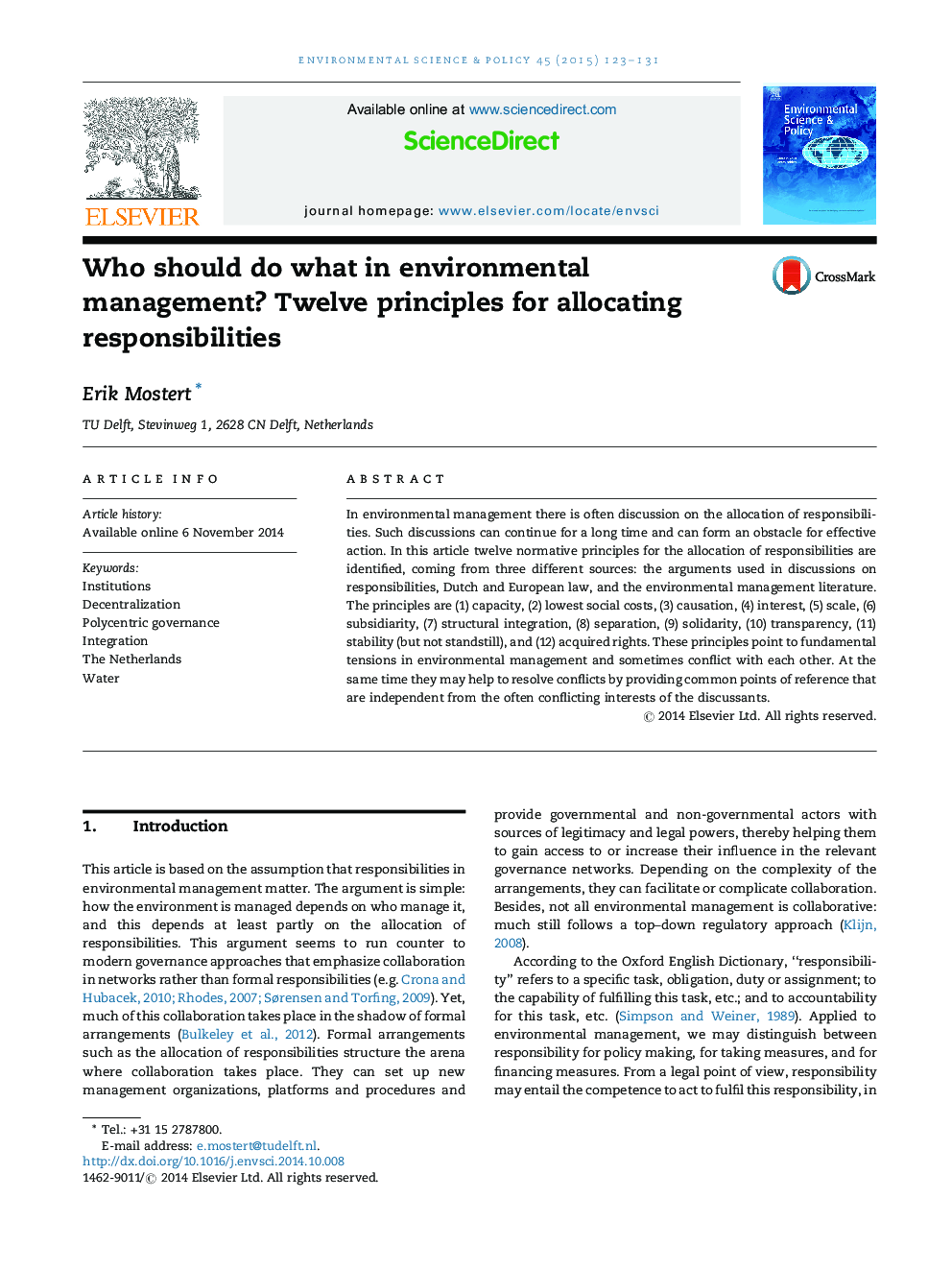| کد مقاله | کد نشریه | سال انتشار | مقاله انگلیسی | نسخه تمام متن |
|---|---|---|---|---|
| 1053538 | 1485061 | 2015 | 9 صفحه PDF | دانلود رایگان |
• We identify twelve principles for the allocation of responsibilities in environmental management.
• They can inform and improve discussions on responsibilities.
• They point to fundamental tensions in environmental management.
In environmental management there is often discussion on the allocation of responsibilities. Such discussions can continue for a long time and can form an obstacle for effective action. In this article twelve normative principles for the allocation of responsibilities are identified, coming from three different sources: the arguments used in discussions on responsibilities, Dutch and European law, and the environmental management literature. The principles are (1) capacity, (2) lowest social costs, (3) causation, (4) interest, (5) scale, (6) subsidiarity, (7) structural integration, (8) separation, (9) solidarity, (10) transparency, (11) stability (but not standstill), and (12) acquired rights. These principles point to fundamental tensions in environmental management and sometimes conflict with each other. At the same time they may help to resolve conflicts by providing common points of reference that are independent from the often conflicting interests of the discussants.
Journal: Environmental Science & Policy - Volume 45, January 2015, Pages 123–131
